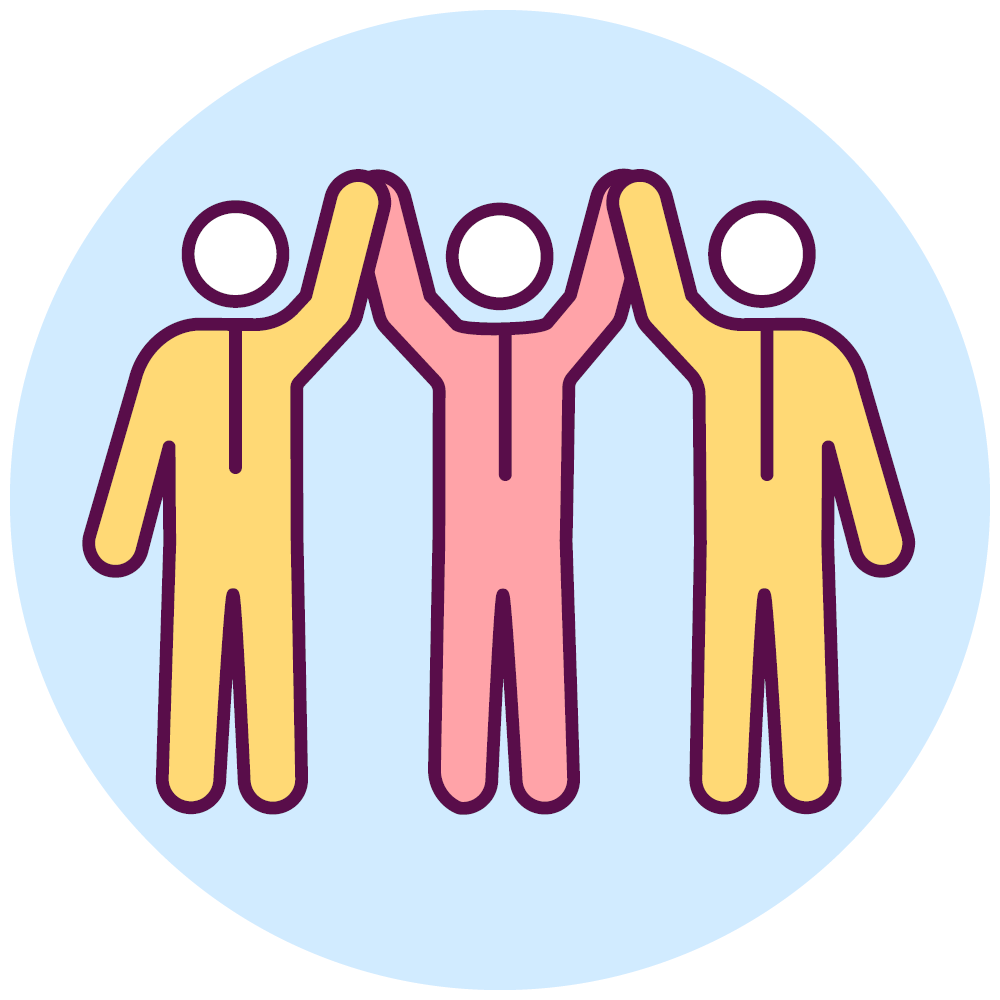Employee recognition is the act of expressing gratitude for employees’ contributions to the culture of the workplace and business. It is distinct from peer-to-peer recognition, which is when employees show appreciation and gratitude for colleagues’ work and public support. Peer-to-peer recognition programmes have helped many companies create cultures and good working atmospheres where staff feel appreciated for their efforts.
Here are 5 benefits of peer-to-peer recognition:
1. Increased employee satisfaction
Employees who feel their colleagues appreciate their work are likely to be more satisfied with their jobs. Peer-to-peer recognition becomes a source of motivation that increases collaboration and allows us to have a real vision of how much impact our work has on both the organisation and the people with whom we work directly.
When employees feel that their efforts are appreciated, they are also likely to feel more positive about their job and the organisation as a whole.


2. Improved employee relationships and collaboration
Increasing positivity and giving thanks are both great ways of improving employee relationships. It requires prior emotional work with the goal of understanding how we can influence, in an adaptive and intelligent way, both our emotions and our interpretation of the emotional states of others.
In addition, when an employee recognises their colleague for a job well done or a great contribution to a team task, it is more likely that the employee who receives the recognition or other members of the team will continue with this positive cycle of recognition amongst peers.


3. Inclusive recognition improves the sense of belonging
Peer-to-peer employee recognition is an inclusive type of recognition. Everyone can recognise and can be recognised in equal measure. Recognition between peers creates a positive atmosphere where peer support can thrive. Being recognised by peers can help improve the sense of belonging within an organisation. A sense of belonging involves commitment, pride and motivation as part of workplace goals. Staff who feel appreciated are far less likely to go looking for new work.


4. Reduced perception of hierarchy
Peer-to-peer recognition helps remove the rigidness of hierarchy from an organisation when the organisation empowers workers to freely recognise each other’s achievements. Management is no longer required to be the sole driving force behind creating collaboration, appreciation and engagement.
Furthermore, peer-to-peer recognition can also increase workforce efficiency and motivation. This is because of the good that comes from being recognised. Employees are encouraged to make decisions more efficiently. This is closely related to customer satisfaction and the good quality of services provided. Employees who feel appreciated are more likely to provide better care and support for customers.


5. Increased sense of well-being
It is important to maintain a good level of mental wellbeing in the workplace, as facilitated by the feeling that our peers appreciate our daily efforts. The actions and the effort that we invest every day at work transcend the work sphere and impact in our personal life as well. Employee rewards and recognition also increase self-esteem. The more satisfied and happy we are in our work lives, the happier we will likely feel in our personal lives.


Why is peer-to-peer recognition important at Medline?
At Medline, we are committed to peer-to-peer recognition, as it is the best way to have a healthy workplace where everyone feels valued. Medline Europe’s human resources department has created different development resources and tools, such as the Medline Appreciation Board, where employees can internally appreciate their colleagues, and a social media library with template images to encourage external recognition. As part of the strong work ethic of Medline, we aim to not only appreciate our colleagues' passion and drive for their work but also normalise these ways of appreciating across the organisation.
There are more ways to weave appreciation into your interaction with others, including sending a thank-you email or recognising a team member's efforts during a group meeting. Thanks to peer-to-peer recognition, we can understand and appreciate the value that each member brings to the table, in order to achieve and even exceed results.
When was the last time you showed your appreciation for/to a colleague who provides good support?


Paula Dalmau
Communications Coordinator Sales and Marketing, Medline Iberia
Paula is a passionate Spanish writer based in Madrid. Her interests are well-being, emotional intelligence and business topics. Her educational background is in journalism, advertising, public relations and digital marketing. Learn more on LinkedIn.



